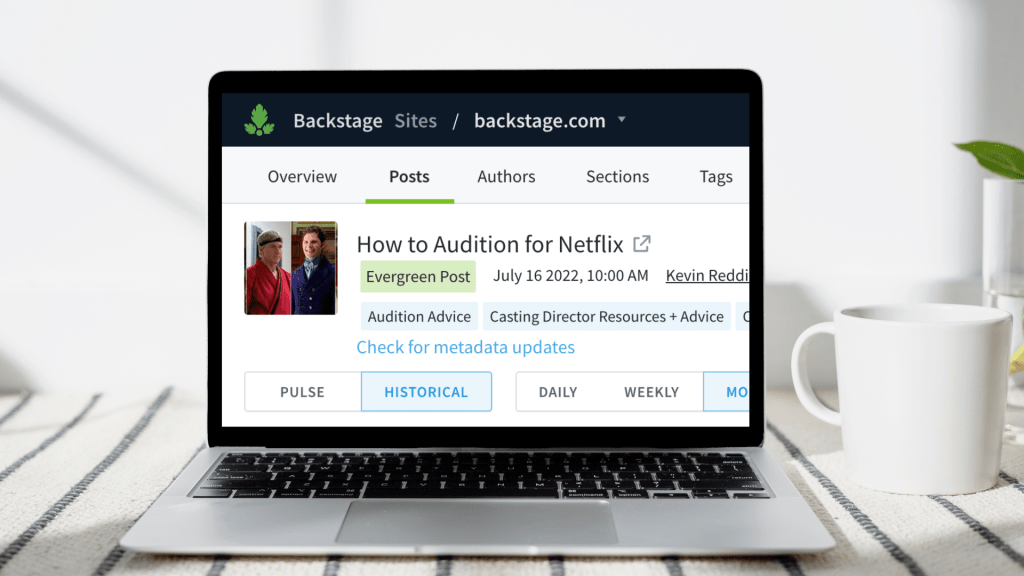Why Backstage Relies on Parse.ly’s Change in Metadata Detection

Do you have a page on your website that you update regularly? This can cause problems when reporting on its performance, because the content changes.
Imagine you’re an editor who has spent the month re-tagging your library of content to gain deeper insights into your audience’s interests. However, when you generate your end-of-month reports, you discover that the updated tags haven’t made it into your analytics dashboard. This is because most analytics tools update metadata only when the content is first published and don’t reflect subsequent edits and improvements.
Parse.ly has come to the rescue with two new features: Metadata Change Detection and Check for Metadata Updates.
Metadata Change Detection automatically detects changes in metadata on your website and updates your Parse.ly dashboard accordingly. Check for Metadata Updates allows you to prompt the check yourself.
Why change in metadata detection matters for Backstage
These features are game-changers for editors like Jaqueline Tynes from Backstage who regularly update content to drive engagement and business outcomes.
At Backstage, Jaqueline creates roundups of casting notices for various industries—such as film, TV, and theater—that drive users to apply for those openings on Backstage’s job platform. But the listings in these articles are temporary and ever-changing—gigs get cast, job openings expire, etc. As such, that content gets updated weekly, and so does the metadata associated with each article.
“[We might create] a roundup of HBO gigs that are casting now, a roundup of New York City casting calls, and so on. Therefore, my articles are “gutted” constantly by removing expired listings and adding new ones. This means the articles’ headlines, images, tags, etc., change on a weekly basis.”
— Jaqueline Tynes, Backstage Editor
Previously, to be able to monitor the associated stats in her Parse.ly content analytics dashboard, Jaqueline had to tediously recall or source the original headlines of each article, a daunting task, as some were published years before her start date.
Great time-savers, Parse.ly’s new metadata detection features mean Jaqueline can more easily locate and report on her articles in Parse.ly, view changes made to the metadata of each article, and track engagement and report on performance. This helps her get back to focusing on creating and updating content, confident in the knowledge that the metadata flowing into Parse.ly is accurate and up-to-date. All this helps her make better content decisions.
“This feature is amazing as the majority of my articles get updated on a weekly basis. This feature makes my life so much easier for reporting.”
— Jaqueline Tynes, Backstage Editor
Learn more about Parse.ly’s metadata detection features in this post.